




























20 – And-Man and the Wasp
I’ll be honest, this isn’t one of my favorite films in the MCU franchise. It wasn’t a bad movie at all, but I just liked others more. But again, that’s like saying it was only an 8 instead of a 10. It was still an 8. It just didn’t have the same umph as some of the other movies. Don’t get me wrong though, I still really like the movie. It had some really great moments, some incredible action sequences, and some pretty funny comedy. It was a fun film, and a worthy entry in the franchise. Its blend of humor and action was spot-on.
Paul Rudd is always good, as is Evangeline Lilly, and you can never go wrong with Michael Douglas, and a new addition to the cast, Michelle Pfeiffer. And we can’t forget returning actors, Michael Pena, Tip “TI” Harris, and David Dastmalchian, Scott Lang’s crew. We also got Lawrence Fishburn, Hannah John-Kamen, and Walton Goggins. I think it’s important to mention them all because they all did a fantastic job. I especially liked Pfeiffer as Janet van Dyne, but then again, I’ve never seen her do a bad job in anything. Sadly, Fishburn’s part as Bill Foster was a little lackluster because of the script, though as always, his acting was very good.
One of the complaints many people have with the MCU is its excessive use of CGI, but I say, if it is as good as it is here, then why not use it. The visual effects were incredible. Everything that took place in the Quantum Realm were visually stunning! It was bright and colorful and had a unique beauty that was all its own. I especially loved the tardigrades. That’s one thing at which all the MCU movies have been amazing. They create fantasy worlds that are unlike anything ever seen on the big screen. But if we’re talking about that, then why not go one step further and talk about the production design, in general. The rest of the story takes place on Earth, and so the settings are pretty familiar. But the way they portrayed Ghost on the screen, the way she phased in and out of existence, was so cool! And the actress did a great job selling the character.
The movie was an action/comedy and none of it fell flat. The bits with Scott’s posse were really funny. Michael Pena is a treasure as Luis. He was a fan favorite in the first Ant-Man movie, and he didn’t disappoint here. I loved the truth serum scene. “You put a dime in him, you got to let the whole song play out.” “He like human juke-box.” And the fast, stream-of-consciousness way he has of talking is just fun. And the Baba Yaga running joke with Kurt makes me laugh every time. And who can forget the funny scene where Scott is trying to get something from his daughter’s classroom at her school, and he has several size mishaps? That was comedy gold.
But on the flip-side, the action was what we have all come to expect from an MCU movie. It was fast-paced and thrilling to watch. The first big action sequence where Hope fights Ghost was amazing. And I think this movie succeeded where many of the other MCH movies did not. Often-times the heroes are pitted against villains with similar, if not identical, powers. But Ghost was a wildly unique villain. Try to punch her, and your fist will hit nothing but air.
And finally, I’d like to give a special shout out to a small character who was memorable enough to bring him back later on when Disney made the first MCU TV show, Wanda Vision. Randall Park played Jimmy Woo, the FBI agent who was constantly trying to catch Scott breaking his house arrest, but failing every time. I know I’m starting to sound like a broken record at this point, but the movie got so many things right, and so few things wrong. It was exciting and fun, and even tied into the devastation at the end of Infinity War. The OMG moment in the post credit scene where Scott is stuck in the Quantum realm was just mind-blowing, because when we see the three clumps of dust floating away, we all know what it means! It was ominous and haunting, and the perfect way to end the movie. Now that’s some incredible story-telling!
Top 10 Favorite Parts
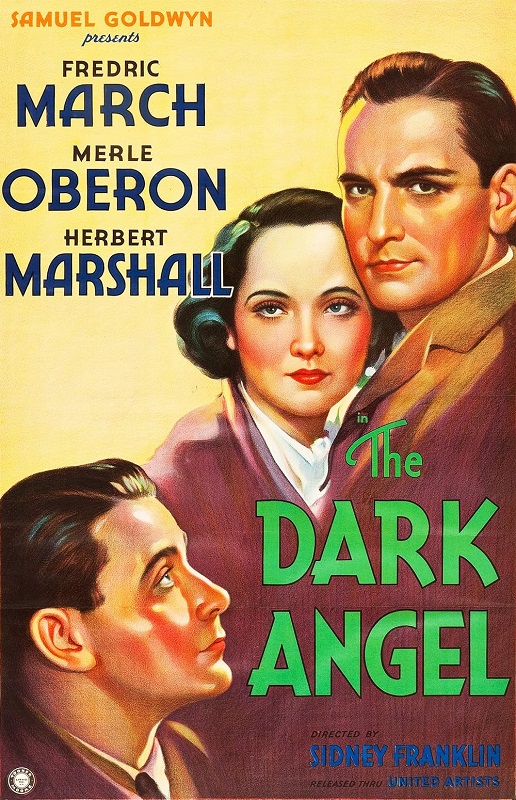
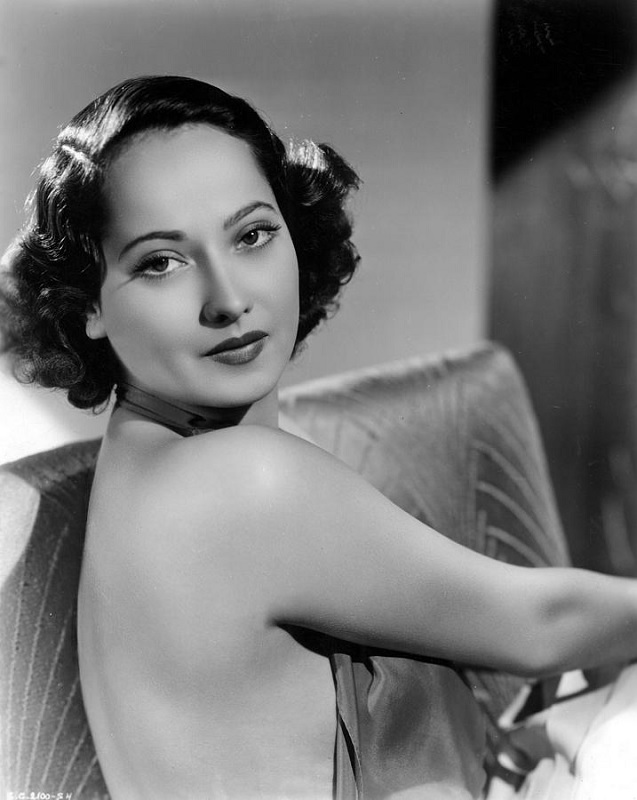

1935 – Merle Oberon
The Dark Angel
This was a movie that left me… undecided if I liked the ending or not. But one thing I’m not undecided about is Merle Oberon’s performance. I think she did a fine job. I can understand the Oscar nomination, but I can also understand why she didn’t win. She was very good, but when I compare her to Miriam Hopkins, Claudette Colbert, and Katherine Hepburn, she seemed a little inexperienced, a little unsure of herself. But that’s like saying she was a nine instead of a ten.
Oberon played the character of Kitty Lane, a young debutant who was good friends with two boys from a neighboring family. She always knew which brother she loved, though both of them were in love with her. When the boys go off to war, her fiancée is injured with blindness and tries to make the world believe he is dead. So Kitty marries the other brother instead. But when he learns that Kitty’s true love is still alive, they confront him together. Knowing that she still loves him, Kitty’s husband quietly disappears and gives his wife permission to return to the man she loves, saying that she will always be there to care for him, despite is affliction. I don’t know how I feel about that ending, but there it is.
Either way, Oberon was very convincing. The scenes where she has to let her fiancée leave to fight in the war, knowing she might never see him again were played beautifully. Though he tried to make her pretend that the Sword of Damocles was not hanging over their heads, you could see the ever-present fear in her eyes. You could see that his way of dealing with their imminent parting hurt her, and her struggle to put on a façade of confidence and normality was all in vain.
And later on, when she marries the other brother, you could see in the way Oberon played the part, that she loved him more as a brother than a husband. There was a resigned look on her face that spoke volumes. The drama was good, and it didn’t hurt that Oberon was simply gorgeous. But in spite of all that, she didn’t draw my attention. She wasn’t captivating on the screen. Maybe that would come in later performances. I honestly don’t know since I haven’t seen any of her other films, but I have no doubt her confidence in front of the camera would grow.
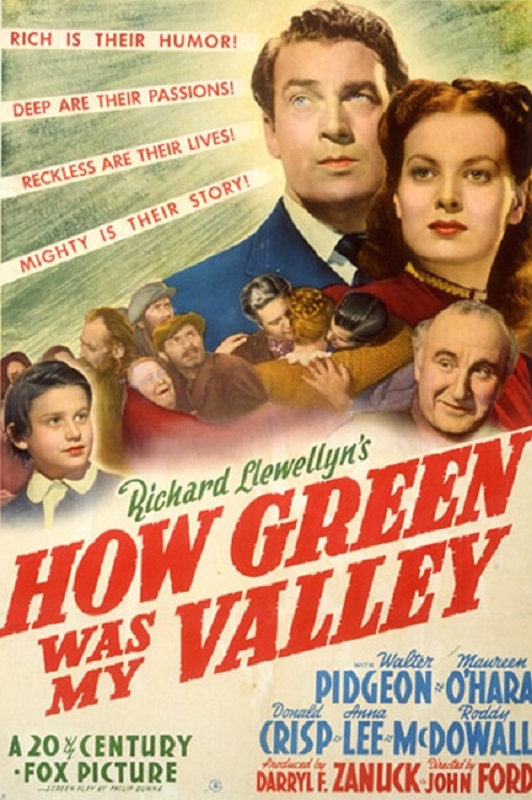
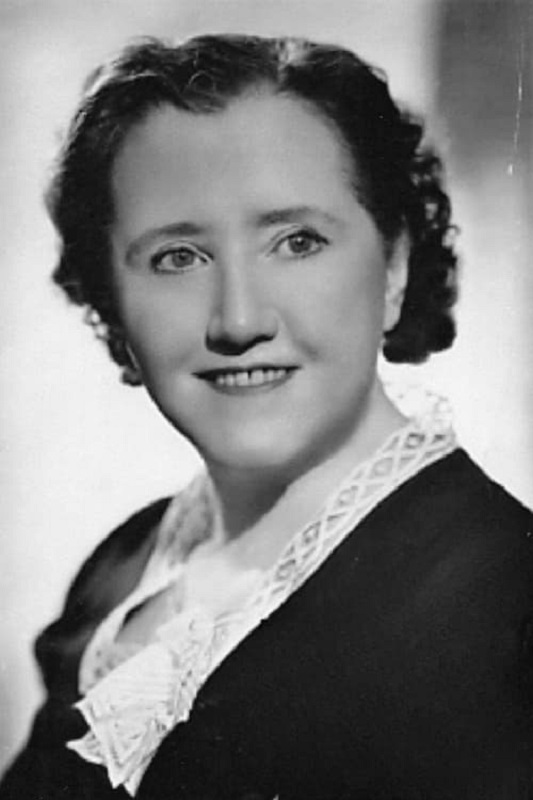

1941 – Sara Allgood
How Green Was My Valley
Any movie that centers around a family and the love within that family, has to have a strong and caring matriarch, and Allgood fit the bill perfectly. She played Beth Morgan, the mother of six boys and a daughter. The entire cast was good, and she was no exception. She looked the part, she played it well, and it was well-written, so I think her Oscar nomination was completely deserved.
Allgood created a multi-dimensional character, though a lesser actress might have easily made her flat and uninteresting. She had the task of seeing her family through both good times and bad. The movie said it pretty well when it said that if her husband, played by Donald Crisp, was the family’s head, she was its heart. It was clear that the actress understood the character, knew her motivations, her strengths, and even her weaknesses. Allgood did a fantastic job of bringing these things out, not just with her dialogue, but with her eyes, the way she carried herself, the intimate way she interacted with her sons and husband.
Some of her most powerful scenes were near the end of the movie, when her husband is killed in a mining accident. The way she was filmed, with her face lit from above so that her eyes were lost in shadow, was an intense image. She looked almost ghostly, and yet you never saw a tear on her cheeks. To me, that says that the character had long lived with the ever present possibility of such a tragedy hanging over her head, and when it happened, she was prepared. Allgood really sold that moment, and she earned her nomination.
But then right after that, Beth has a vision of her husband’s spirit visiting her. She knows he has died, and yet there is a smile on her face, a smile of real sadness mixed with pride and love. It was a sweet and touching moment. I’ve seen this movie several times, and each time, I like it more than the last. It is the powerful performance of the incredible cast that speak to me every time. They all did a fantastic job, and Allgood was no exception.

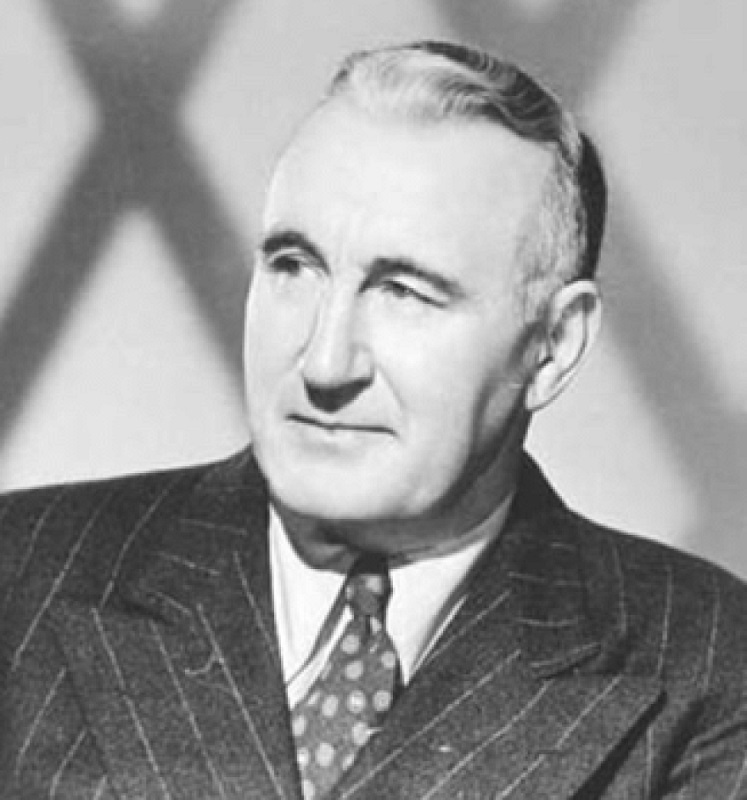

1941 – Donald Crisp
How Green Was My Valley
This movie has gotten some pretty heavy flack for not being a worthy Best Picture winner. But because of outstanding performances from the cast, I believe that not only were all the accolades deserved, I think, even today, that it was a valid winner. In writing all my reviews for Oscar winning and nominated films, I’ve had to watch this supposedly unworthy film several times, and each time I enjoy it more. And every time I see Donald Crisp playing Gwilym Morgan, I am reminded of just how powerful his performance was.
He was the stoic and religious patriarch of the family. He was father to six boys and one girl. He was stern, and yet loving, proud and passionate, and yet tender-hearted. Not only was his performance deep and insightful, but it was written well. This is what makes an Oscar-worthy performance and I completely agree with his win. It was very well-deserved.
He clearly understood the character, his motivations, and his passions. The role allowed him to explore emotional depths that are just as powerful today as they were in the 1940s. He was a coal miner who took pride in his work and in his family. And when the changing times became hard on the mine, and the politics of the region pulled his family apart, he did his best to maintain his integrity and his ethics. And yet, as would have been proper for the times, he did his best to keep his emotions contained, to be the strong rock that held his family together.
Crisp’s performance had plenty of drama and pathos. Every time I watch the film, I am drawn in and captivated by the way he carries himself, the strong yet gentle way of him, and his love for his wife and children. I love how the Bible was Gwilym’s anchor, and how, when dealing with conflict with his sons, he never yelled or scolded. There seemed to be love in his every word. It just made his death scene that much more emotional, more tragic. When I look at the list of Best Supporting Actors for 1941, Donald Crisp stands out to me as the clear winner and I imagine that this one was a no-brainer to the Academy voters. It certainly was to me. It is because of this movie that I always love seeing him on the screen.



1941 – Sydney Greenstreet
The Maltese Falcon
Am I being too critical, to judgmental? Here we are with another actor nominated for an Oscar, and once again, I am questioning his nomination. I mean, he was good, but not great, and I want something great. There just wasn’t much to his character. He only showed up about half-way through the film, which doesn’t necessarily mean anything, but his on-screen time to impress me was limited.
He only had two or three facial expressions that he kept recycling. Playing the character of Kasper Gutman, Greenstreet went from serious to mildly amused, to frustrated, and that was about it. He was not given a wide range of emotions to explore, nor were any of his scenes particularly intense. He seemed personable enough for the bad guy, but his men, Joel Cairo and Wilmer Cook were more menacing than him. But maybe that was just how the character was written. Maybe I can’t lay that all on Greenstreet’s shoulders.
Still, he had an affable enough on-screen persona with a personable smile and a disarming attitude. I suppose that made him interesting to watch. But even at the climax of the plot, I think I wanted more from him. He has been pursuing the fabled Maltese Falcon for seventeen years. He finally has the statuette in his hands. But within seconds, he learns that it is a fake. Then, without missing a beat he laughs it off and says that the quest continues. One would think that a man with such an obsession would be more angry at learning that the time and money he spent trying to find the Falcon were all for nothing. But no. He chuckles, shrugs it off, and leaves to return to Constantinople. Written that way? Yes. But I still think I wanted a more powerful reaction than I got.
Two final thoughts about Greenstreet’s performance. First, he wasn’t bad in the roll, but I don’t think the roll was worth the nomination. Second, the original ending of the novel might have enhanced his character. In both the movie and the book, Gutman leaves with Cook and Cairo. That’s the end of it, except to imply that the police are going to arrest the trio. But in the original novel, Cook kills Gutman, presumably because he was willing to make Cook the fall-guy for all the murders, even the ones he didn’t commit. That could have been a cool scene, and at least Greenstreet could have had a cool death scene.
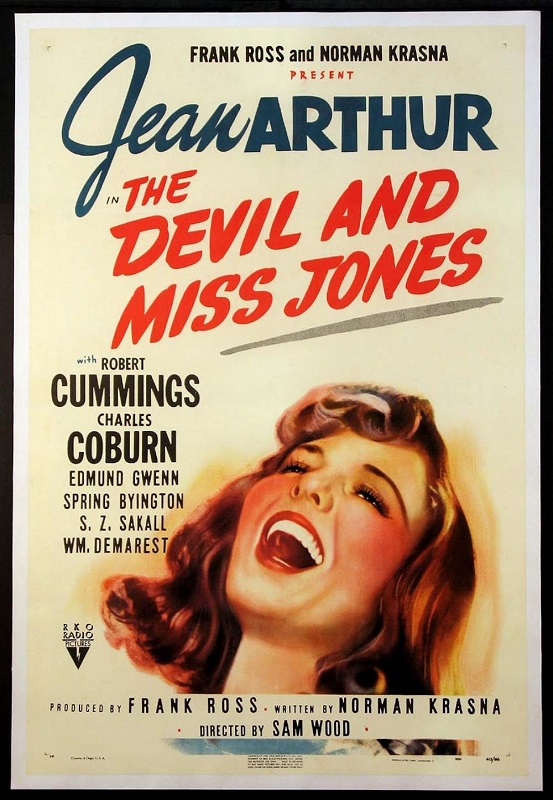
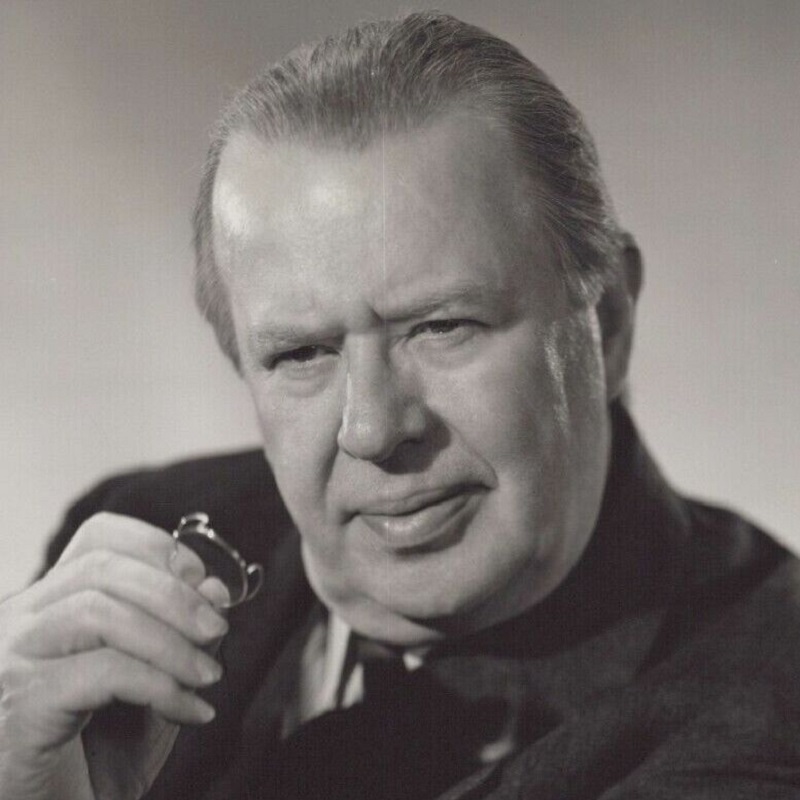

1941 – Charles Coburn
The Devil and Miss Jones
First of all, this nomination was for the wrong category. If anything, Charles Coburn should have been nominated in the Best Actor category. After all, he was the lead character in the story, and was in no way a supporting character. The movie started with him, followed his character arc, and ended with him. But all you have to do is look at the poster to see that this movie was a vehicle for Jean Arthur, even though she was by far the supporting character. In fact, if you read the two sentence synopsis of the film on Wikipedia, Jean Arthur’s character isn’t even mentioned. “The plot follows a department store tycoon who goes undercover in one of his Manhattan shops to ferret out union organizers…”
He started off a mean old rich man that nobody liked, and about fifteen minutes into the movie, turned into a nice enough guy that a few people liked. But by the end, he was a happy, generous man who everybody liked. And Coburn played it all pretty well. Unfortunately, the script really made the transitions between these three phases too abrupt and out of the blue. One minute he wants to fire everyone in his department store, the next, he is ready to fight for their rights.
But I’ll say again that Coburn played all three aspects of Mr. Merrick very well. He was able to be the stern wealthy man who is angered when he learns of union workers that are protesting his treatment of them as employees. Coburn played Merrick as grumpy, mostly coming from the eyes. But after he takes a job as a salesman in his own store, he gets to know the union people, and actually falls for one of them. Then his eyes got softer and more sympathetic. And finally, once it is time for his ruse to end, he took on a wide-eyed expression that made him look like a slightly confused, kindly old grandpa.
Coburn did a good enough job, and I suppose I don’t mind his nomination. But I just have to think that if he’d been put in the correct category, he wouldn’t have been nominated for anything, not when I consider the competition in the Best Actor category. Gary Cooper, Carey Grant, Walter Huston, Robert Montgomery, and Orson Wells. All that is to say that he was good, but not great, and there was no shame in losing the Best Supporting Actor Oscar to Donald Crisp in How Green Was My Valley. That one would have been a hard one to beat.



1941 – Olivia deHavilland
Hold Back the Dawn
Maybe I’m looking at this movie, this character, and by extension, this actress with too cynical a modern eye. Did deHavilland play the part as it was written? Yes, she did. Was is a pretty dumb premise? Yes, it was. Did I enjoy watching the movie? Only a little. If an acting nomination needs to be a combination of script and actor, then here, the script let the actor down, but only by modern standards. I’m sure it was seen quite differently in 1941.
Olivia played the role of Emmy Brown, a sheltered, lonely school teacher who meets the film’s con-man protagonist, played by Charles Boyer. After being wooed by him for a few hours, she marries him and falls hopelessly in love. And if you can get past that bit of idiocy, then you can enjoy the romance of the film. The character of Emmy required a ridiculously gullible nature, a willful blindness to good sense, and a delusional desire for an idealized marriage. That is… until the end of the film where the con-man’s dishonesty is revealed.
Finally, deHavilland got to use a bit of her acting chops and allow her to give Emmy some realism and dimension. When Boyer’s true intentions are revealed, she has enough true love in her heart for him that she lies to a government official in order to save her lying husband from prosecution. Unfortunately, as she is driving back home in tears, she is foiled by an open car window and an attacking shawl. Once the garment is blown over her head, she runs her car off the road and nearly dies.
After that, we only see her two more times. Once as she is unconscious and near death in a hospital bed, and again as she returns to Mexico to fetch her husband, who, she discovers, really does love her because he’d come to her bedside in the hospital. She meets him at the US border and they kiss. The end.
I don’t know. I found her character to be a little one-dimensional. She was a little too sweet for reality, but I don’t think it was entirely her fault. It was just the way the character was written, and she did just fine with what she was given. But I don’t know if it was worth a Best Actress nomination.


























